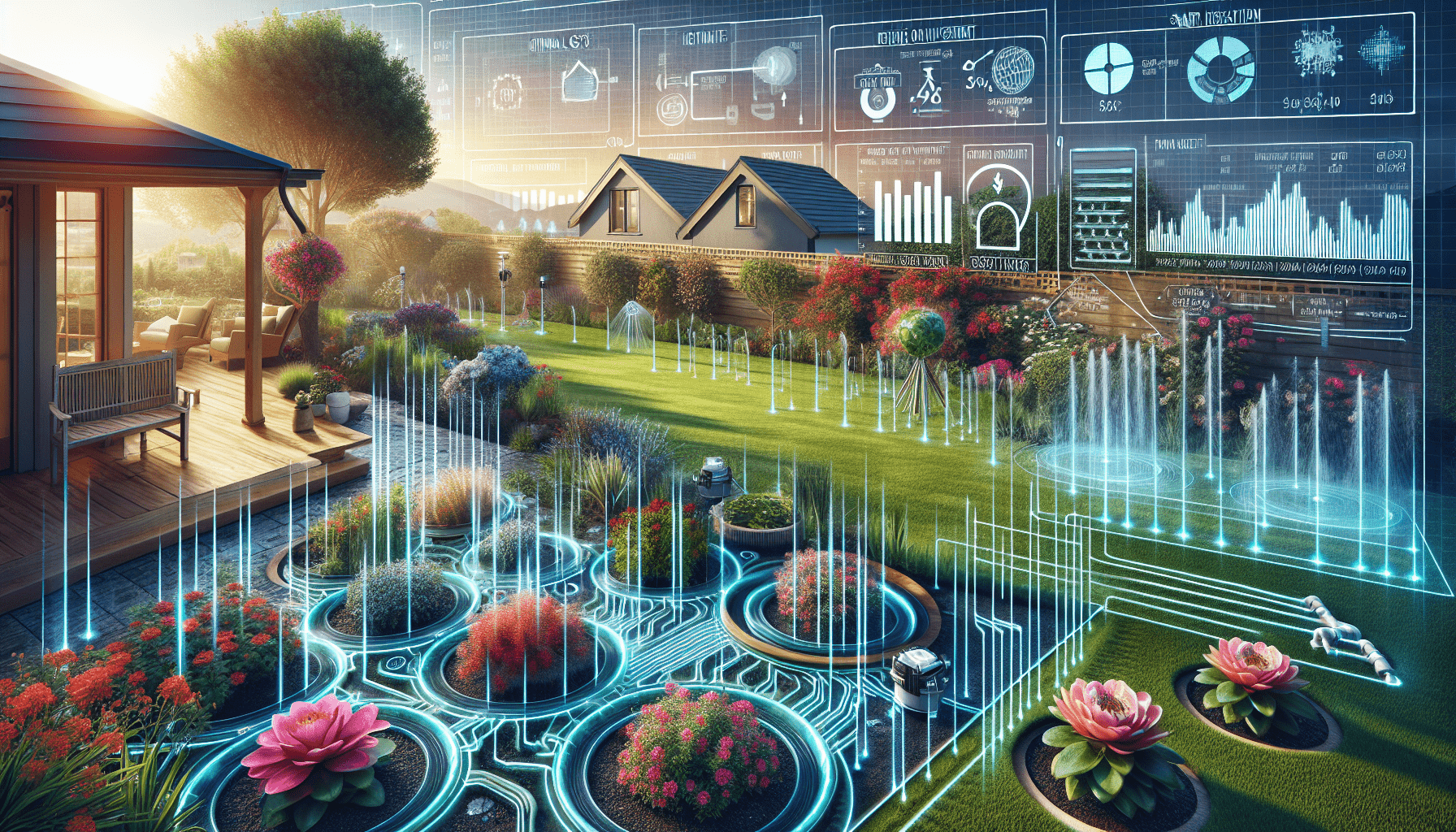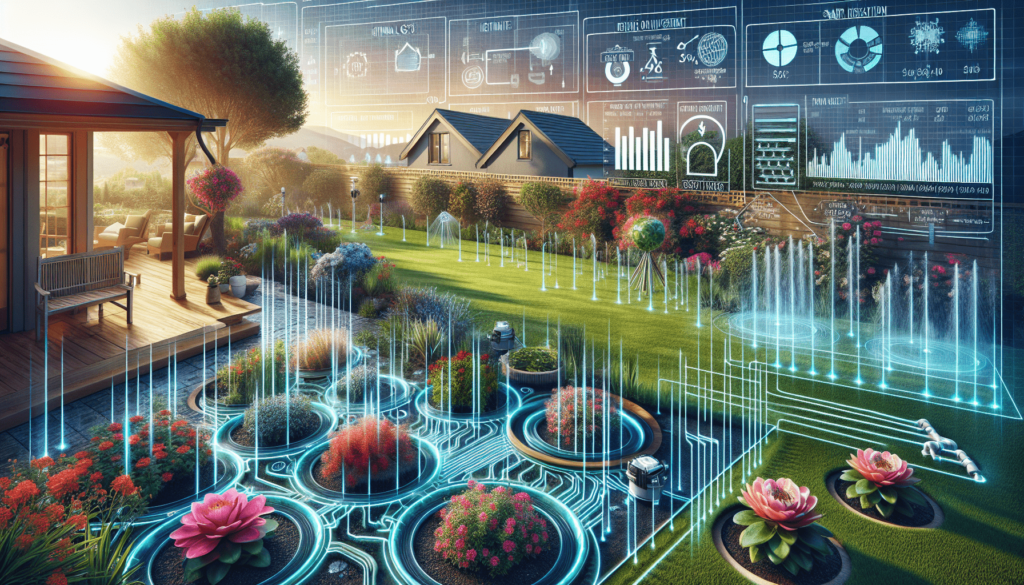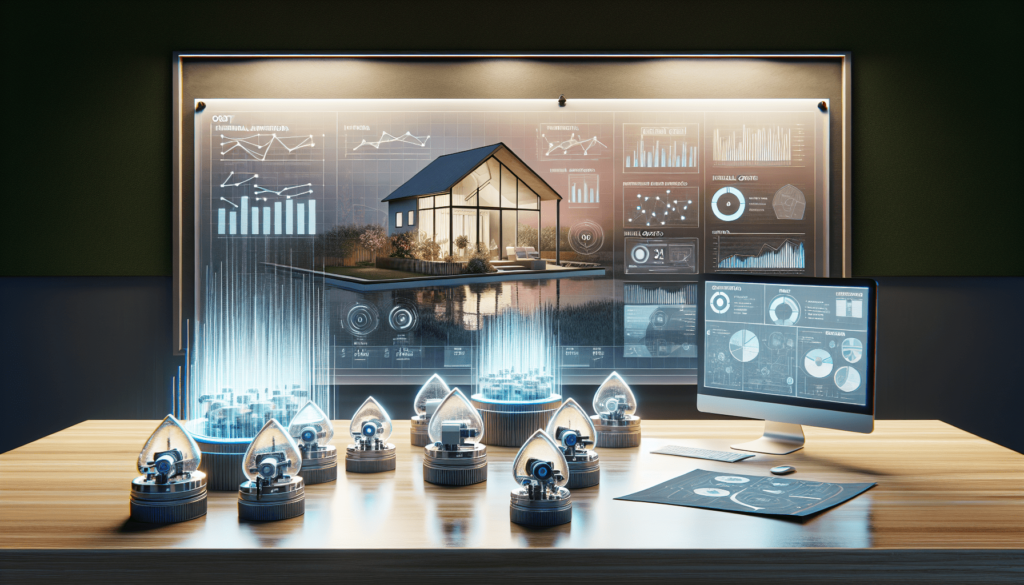
You’re probably curious about the world of smart irrigation systems. You may be asking yourself, “how much does a smart irrigation system cost?” Should you budget for it seriously? We understand how important this could be for you, whether you are a homeowner who desires an efficient water management system, or an entrepreneurial farmer looking to maximize crop yield. This article aims to break down the cost factors involved in getting a smart irrigation system and help you make a well-informed decision.

Understanding Smart Irrigation Systems
Spend a few minutes talking about the world of irrigation and you’ll quickly stumble upon the term ‘smart irrigation system’. So, what exactly is it?
Definition and Purpose of Smart Irrigation Systems
A smart irrigation system is a network of devices, sensors, and water lines that work together to automatically water your garden, lawn, or even a large plantation. It’s designed with the sole aim to eliminate manual watering and provide water to your plants, in just the right amount, and at exactly the right time. This way, it helps save water, a scarce resource, and your hard-earned money too.
Different Types of Smart Irrigation Systems
From sprinkler controllers and smart timers to soil moisture-based systems and weather-based systems, there is a wide variety of smart irrigation systems you can choose from. A system that suits a small garden might not be as effective for a large farm, and vice versa, so it’s important to understand the differences before you make your choice.
Key Features of Smart Irrigation Systems
Some common key features of smart irrigation systems are Wi-Fi connectivity for remote control, local weather data integration for automated watering, soil moisture sensors for efficient watering, flow control to avoid water waste, and real-time alerts to keep you updated on the system’s activities.
Initial Costs of Getting a Smart Irrigation System
Now let’s talk about the elephant in the room – the cost.
Cost of Smart Irrigation Equipment
The initial cost of a smart irrigation system can vary greatly, depending on the type and complexity of the system. Basic smart controllers can start as low as $100, while extensive systems can cost several hundred dollars depending on the brand and additional features.
Cost of Installation Services
Though some smart irrigation systems come with a do-it-yourself installation guide, many homeowners prefer to hire professionals due to the technical complexity of the system. These installation services can range anywhere from $50 to $100 per hour.
Required Add-Ons and Their Costs
There might be some necessary add-ons that can add to the initial cost, like additional sensors or smart water meters. These prices can vary widely depending on the complexity and type of your system.
Smart Irrigation System Brands and Their Price Ranges
Believe it or not, there are dozens of smart irrigation system brands on the market, each with its unique features and price range.
Review of Top Smart Irrigation System Brands
Some of the top brands include Rachio, Orbit, Rain Bird, and Hunter. Rachio is known for its easy-to-use app and customizable watering schedules, Orbit is famous for its budget-friendly innovations, Rain Bird has been in the irrigation business for over 80 years and has a very faithful customer base, and Hunter is renowned for its top-notch weather sensors and robust construction.
Cost Comparison of Popular Brands
The cost of these systems starts around $100 for an Orbit B-hyve controller and can go up to $400 for a professional Rachio system.
Brand-Specific Features and Their Impact on Pricing
Each brand offers unique features like special sensors, app interfaces, and compatibility with different smart home systems. These unique features can notably contribute to the overall cost of the system.

Implementation Costs for Smart Irrigation Systems
Once you’ve chosen a system, there are a few additional costs to be aware of to get it up and running.
Cost of Connecting to a Water Source
Some systems might require extra plumbing work to connect to a water source, which can add to your initial costs. Plumber costs can vary, but prepare to spend at least $50 to $100 per hour.
Cost of Power Supply Installation
Similarly, setting up the power supply for your smart irrigation system might involve extra costs, particularly if you need to establish an outdoor power connection.
Cost Involved in Linking to Smart Devices
Linking your smart irrigation system to your smart devices, like your phone or home assistant, is usually a straightforward process and generally won’t incur additional costs. However, there might be some systems that require professional assistance.
Maintenance Costs for Smart Irrigation Systems
You’ve got your shiny new smart irrigation system installed, now let’s not forget about the ongoing maintenance costs.
Routine Maintenance Requirements
Just like any electronic device, your smart irrigation system will need regular checkups and cleaning to ensure it’s running smoothly.
Possible Repair or Replacement Costs
Though these systems are built to be durable, there’s always a possibility you’ll face some repair or replacement costs down the line.
Cost of Upgrades and Updates
Periodically, your system’s manufacturer might release updates or upgrades to the system. While most updates are free, certain upgrades might come at an additional cost.
Effects of Size and Complexity on Total Costs
The system’s size and complexity can affect the cost significantly.
Cost Differences for Residential vs. Commercial Systems
Generally, residential systems are less expensive than commercial systems, which may require more complex installations, additional equipment, and professional management features.
Influence of Property Size on Total Costs
Similarly, the larger the size of your property, the higher the total cost will be, mainly because you’ll require more equipment and possibly a more complex system.
Cost Implications of Advanced Features
If you opt for a system with advanced features like real-time weather data, soil sensor technology, or Wi-Fi connectivity, you will have to shell out more.
Energy and Water Cost Savings from Using Smart Irrigation
While we’ve talked a lot about costs, it’s crucial to remember the savings that a smart irrigation system can bring.
Reduced Energy Consumption
Smart irrigation systems are usually programmed to water during the coolest part of the day, reducing evaporation and thus, energy consumption.
Lowered Water Usage
With features like rain sensors and soil moisture sensors, these systems can reduce water usage by up to 50%.
Impact on Your Utility Bills
All of these savings add up, and you can see a significant reduction in your utility bills.
Potential Tax Breaks and Rebates for Installing Smart Irrigation
In addition to cost savings, there are ways to make your smart irrigation system more affordable.
Federal Tax Incentives
The U.S government encourages water conservation, and you might find tax breaks for installing energy-efficient appliances.
State or Local Rebates
Some state or local governments even provide rebates for water-saving appliances like smart irrigation systems.
Energy Company Programs that Reward Smart Irrigation
Some energy companies also have reward programs for customers who install energy-efficient systems.
Added Property Value from Smart Irrigation Systems
Investing in a smart irrigation system can also increase your property value.
Impacts on Home Resale Value
A modern, efficient irrigation system can be a selling point, making your property more attractive to potential buyers.
Long-Term Return on Investment
Although the upfront costs may seem high, the long-term return on investment from water savings, energy savings, and increased property value can offset the initial investment.
Wrapping Up: Is the Cost of a Smart Irrigation System Worth It?
Now the big question – is it worth it?
Weighing the Upfront Costs Against Long-Term Savings
It’s essential to look at the big picture. The upfront costs might be high, but the long-term savings from reduced water and energy consumption, in addition to possible rebates and increased home value, can outweigh the initial investment.
Non-Financial Benefits of Smart Irrigation
The benefits aren’t just financial. A well-watered lawn, thriving garden, or healthy crops thanks to your smart irrigation system can provide a lot of satisfaction.
Overall Long-Term Value
In the end, it all comes down to value. When you consider the efficiency, convenience, savings, and peace of mind that a smart irrigation system can provide, it’s easy to see why more and more people are seeing the worth in this technology.
